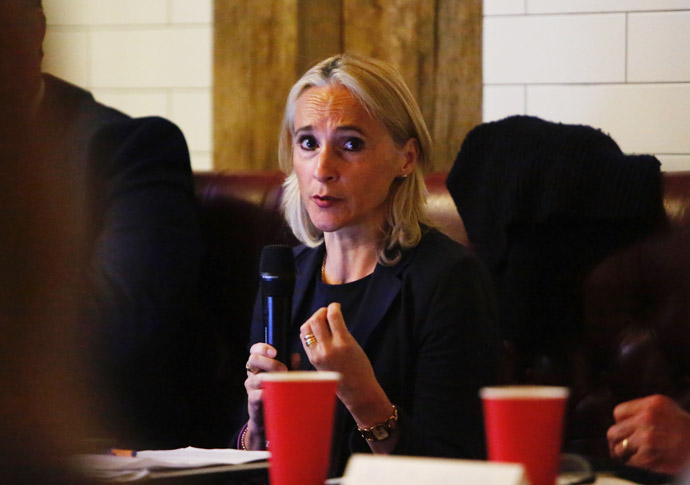‘We’ve got the resources to work on prevention but the schools have to come forward and let us help them’, VAWG summit told
Friday, 29th April 2022 — By Anna Lamche

Alison Bird from Solace
SCHOOLS are not making the most of the resources available to them when it comes to tackling violence against women and girls, a council worker has warned.
At the Tribune’s VAWG summit on Tuesday, contributor after contributor recognised key role education plays in preventing male violence.
Heather Vaccianna, who leads The Sunflower Project – a multi-level prevention programme designed to address gender discrimination in schools – pointed out that Islington does have “a prevention programme that has been going on for 15 years.”
“It’s a free service, but the problem is schools don’t want to invite us in,” Ms Vaccianna said.
“It’s so hard, you email them all the time, you ask them ‘can we come in?’”
“The problem is they’re not inviting us in because they don’t see gender equality as something that’s a priority of the curriculum.”
Of the schools that do recognise the importance of the offer – Elizabeth Garrett Anderson was cited as one example – Ms Vaccianna finds she is invited into schools “time and time again.”
The initiative “was the first programme in the country to talk about FGM and forced marriage,” Ms Vaccianna said. “We were the first local authority to do that in schools.”
In the sessions, Ms Vaccianna said, “we talk about empowerment, we talk about the rights of women, we talk about human rights and women’s rights and the rights of girls. We know the importance of educating young men about their responsibility not to be violent with young girls,” she said.
At the summit, Ms Vaccianna expressed her frustration with Islington schools for their “poor take-up” of the offer, saying she has been “begging them” to invite the project in to classrooms and create “a safe space for children and young people.”
While the resource is free for Islington schools, Ms Vaccianna said other local authorities are “willing to pay for it” because they recognise the value of the scheme.
“It’s about mindset,” she said of the culture in schools. “It’s about them prioritising support for children and young people.”
Alison Bird, of Solace Women’s aid, told the meeting that she has faced “absolutely similar barriers” and agreed that “some schools do not want that conversation to be had.”
Council leader Kaya Comer-Schwartz said she would encourage the council’s new director of children’s services to tackle the reluctance of schools to get involved with the project.